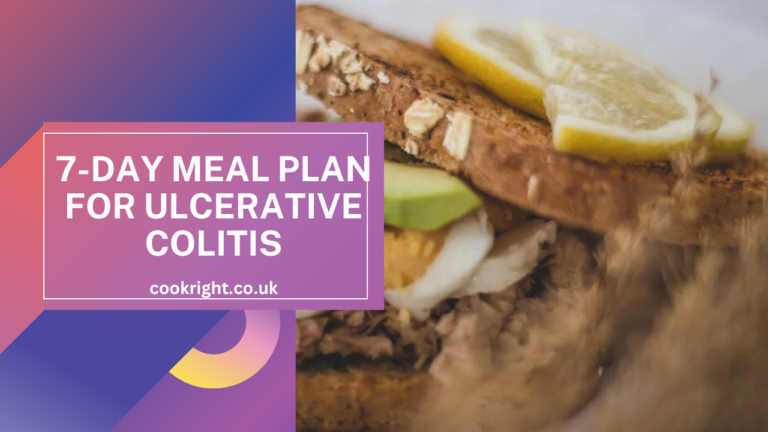The National Youth Service Corps (NYSC) in Nigeria is an important phase in the life of many young graduates. It’s a time of national service, personal growth, and community engagement. While the experience is often filled with learning and adventures, one aspect that stands out, especially during the three-week orientation camp, is the food provided to corps members. The NYSC food timetable can be a topic of interest and sometimes concern for many prospective corps members. This blog post will take you through an in-depth exploration of the NYSC food timetable, what to expect, how to make the most of the meals, and tips on managing your nutrition and budget during your service year.
Understanding the NYSC Food Timetable
During the NYSC orientation camp, the food timetable is designed to cater to the basic nutritional needs of corps members. Meals are provided three times a day: breakfast, lunch, and dinner. The menu is typically a blend of traditional Nigerian dishes, which vary slightly depending on the region where the camp is located. The aim is to provide corps members with a balanced diet that fuels their bodies for the physically and mentally demanding activities of the camp.
Key Features of the NYSC Food Timetable
- Consistency: The food timetable is usually consistent throughout the three-week camp. This predictability helps corps members know what to expect daily.
- Regional Variations: While there is a standard timetable, slight variations may occur depending on the location of the camp. For instance, the type of soup served or the variety of local dishes available might differ based on regional culinary practices.
- Focus on Carbohydrates: The meals heavily feature carbohydrate-rich foods such as rice, yam, bread, and pasta. This is primarily because they are affordable, filling, and provide the necessary energy for daily camp activities.
- Basic Protein Sources: Common protein sources include eggs, beans, fish, and occasionally meat. Due to budget constraints, the protein portion might be smaller than what some are accustomed to.
- Simple Vegetables and Fruits: Vegetables like spinach (or ewedu), okra, and occasional fruits such as bananas or oranges are included, though not in abundance.
- Lack of Variety: One common complaint is the lack of variety, with meals repeating frequently throughout the week.
The Typical NYSC Weekly Food Timetable
Here is a detailed look at a typical NYSC food timetable for the orientation camp:
Monday
- Breakfast: Bread and tea or pap (cornmeal porridge) with akara (bean cake) or fried eggs.
- Lunch: Jollof rice with chicken or fish and a side of plantains.
- Dinner: Eba (cassava flour) with okra soup or vegetable soup.
Tuesday
- Breakfast: Yam and egg sauce or moimoi (steamed bean pudding).
- Lunch: White rice with stew and a piece of beef or fish.
- Dinner: Semovita (semolina flour) with egusi (melon seed) soup or ogbono (wild mango seed) soup.
Wednesday
- Breakfast: Beans porridge with bread or pap and akara.
- Lunch: Fried rice with chicken and salad.
- Dinner: Amala (yam flour) with ewedu (jute leaves) and gbegiri (bean soup) with meat.
Thursday
- Breakfast: Spaghetti with sauce or noodles with egg.
- Lunch: Yam porridge with fish or chicken.
- Dinner: Fufu (fermented cassava) with vegetable soup or egusi soup.
Friday
- Breakfast: Bread and tea or pap with akara.
- Lunch: Jollof rice with plantain and chicken or fish.
- Dinner: Eba with ogbono soup or vegetable soup.
Saturday
- Breakfast: Yam and egg sauce or beans porridge.
- Lunch: White rice with stew and fish or beef.
- Dinner: Semovita with okra soup or egusi soup.
Sunday
- Breakfast: Bread with tea and eggs or akara.
- Lunch: Fried rice with chicken or fish and salad.
- Dinner: Amala with ewedu and gbegiri or vegetable soup.
Making the Most of NYSC Camp Meals
While the food provided by NYSC is meant to be sufficient, it might not meet everyone’s personal preferences or dietary needs. Here are some tips to help you make the most of your meals during camp:
- Supplement with Personal Food Items: If you have dietary restrictions or prefer more variety, consider bringing along personal food items like oats, cereal, nuts, or protein bars. Many camps also have food vendors where you can purchase additional meals.
- Stay Hydrated: The camp environment can be physically demanding, and hydration is key. Always have a water bottle handy, and make sure you drink plenty of water throughout the day.
- Balance Your Diet: Since the meals are heavy on carbs, try to balance them with additional proteins and vegetables when possible. You can bring multivitamins to help supplement any nutritional gaps.
- Watch Your Portions: It can be tempting to overeat, especially when the food is served buffet-style. Be mindful of your portions to avoid discomfort, especially with the physical activities lined up each day.
- Maintain Hygiene: Always ensure your food and utensils are clean to avoid foodborne illnesses. If you have any concerns about the food quality, it’s okay to skip a meal and opt for personal provisions.
Post-Camp: Eating Right During Your Service Year
After the three-week orientation camp, corps members are posted to their primary place of assignment (PPA). At this stage, you’ll be responsible for your meals, giving you more control over your diet. Here are some tips for maintaining a healthy diet throughout your service year:
- Budget Wisely: Plan your meals according to your monthly allowance. Focus on buying staple foods in bulk, like rice, beans, and garri, which are affordable and versatile.
- Meal Prep: Preparing your meals in advance can save time and ensure you eat balanced meals. Invest in basic cooking equipment if your PPA accommodation allows it.
- Explore Local Markets: Local markets often offer fresh produce at lower prices than supermarkets. Get familiar with the local food items and incorporate them into your diet for variety.
- Stay Active: Maintaining a healthy lifestyle isn’t just about eating right. Engage in regular physical activity, whether it’s jogging, joining a local sports team, or simply walking more.
- Join Community Food Co-ops: In some regions, corps members form food co-operatives where they contribute funds to buy food in bulk, which is then shared. This can be a cost-effective way to manage food expenses.
Conclusion
The NYSC food timetable is an integral part of the orientation camp experience, providing the necessary fuel for the demanding activities that corps members engage in. While it might not cater to everyone’s tastes or dietary needs perfectly, with a little planning and flexibility, you can navigate the meals successfully. Post-camp, your food choices are entirely in your hands, offering a chance to explore new cuisines and maintain a balanced diet on your terms. Remember, eating right is key to staying healthy and energized throughout your service year. Embrace the experience, and make the most of the resources available to you.
Wishing you a fulfilling and healthy NYSC journey!
Discover more from Cookright.co.uk
Subscribe to get the latest posts sent to your email.








